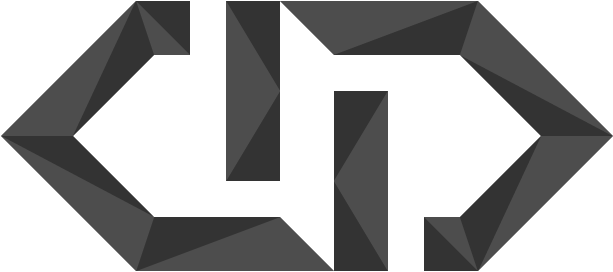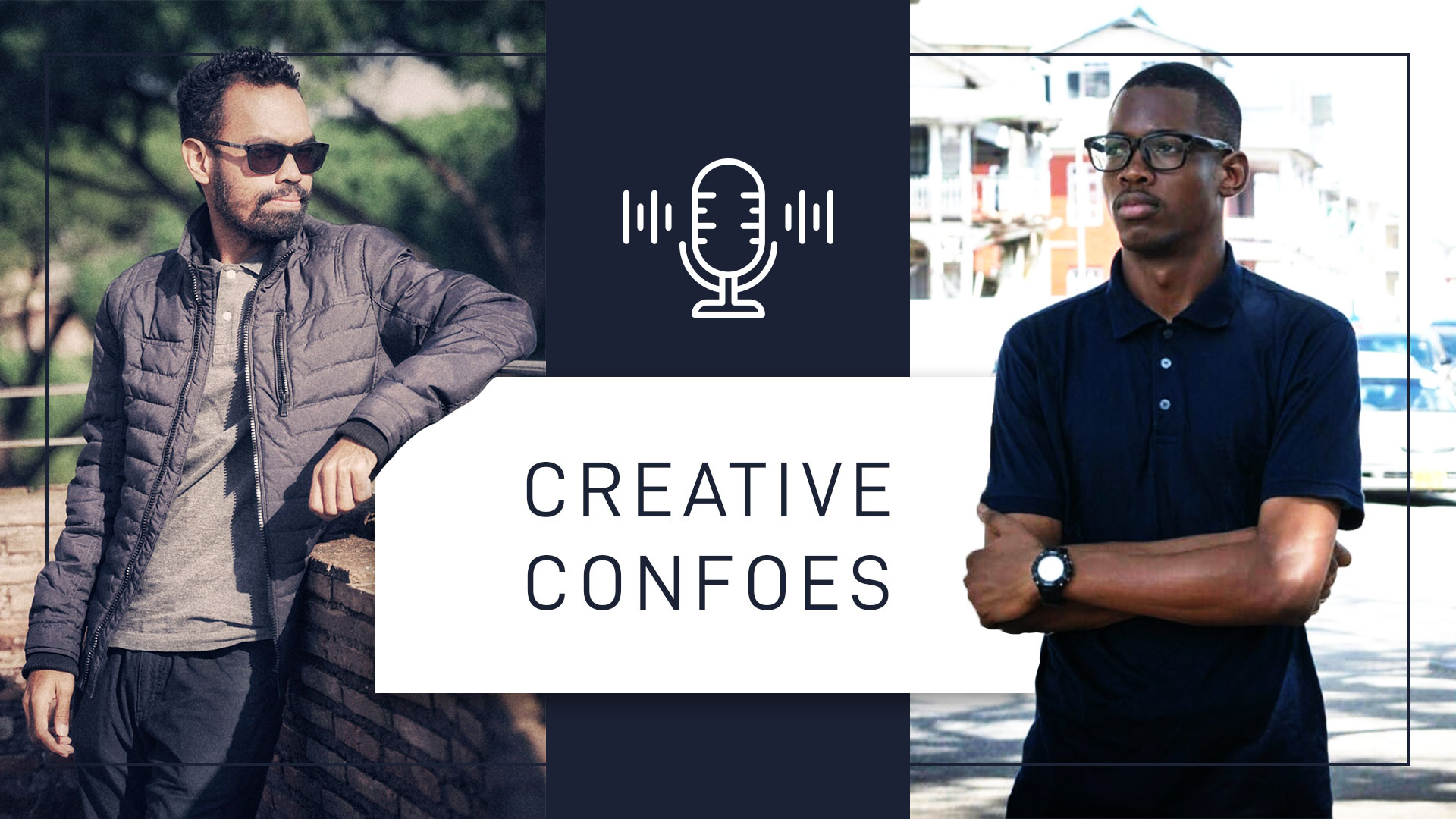In case you missed the podcast episode with Tevin Morris aka MOTEV, you can listen to it here:
Since we spoke Dutch during the majority of the episode, I decided to make a summarized blog post in English for everyone in a Q&A style.
Thanks to Shae for assisting with transcribing and translating this episode. Happy reading!
D: Where does the name MOTEV come from?
T: I was thinking about a name and I couldn’t really come up with one. So then I looked at my name ‘Tevin Morris’ and I thought to just keep it short and simple ‘MOTEV’.
D: One way or another it came out well, MOTEV sounds like ‘motive’ or ‘motif’ as a design element. A happy accident.
D: What other happy accidents have you had?
T: I started to draw for people when I was in high school. I even got money from it, but sometimes I just let people keep it and told them I’ll just ask for a favor when I need it. I started early with drawing, but being paid for my work started in high school. So one of the happy accidents is that it started with one person and then people just kept coming up to me asking if I can start to sketch something for them, so they can finish their drawing and not fail the class.
Later a friend, Alexander aka BR Creative, pushed me into digital illustration.
Another happy accident I’ve had during my time in high school is that someone told me about a logo competition. In the past I already made a logo for my school SGN when they participated in Got Talent and I remember that I enjoyed doing it. Together with that same friend, Alex, we created a logo for a competition organized by OWMCP, which is an organisation that manages water. I participated in this competition because I wanted money to invest. They published a logo without announcing the winner. I thought ‘Did they really end up choosing that logo?’ The logo looked like someone copied our idea and tweaked it a bit. The next day on my way home from school I got a call and I found out that they adjusted our logo, which is why we didn’t recognize that it was ours. We won 100 Euro and me and my friend split it in half. I immediately bought a Wacom drawing tablet, which was around 80 USD, so I had to add a few extra bucks. And that’s how it started in high school. I didn’t even have a laptop yet, before the tablet I just used pen and paper.
D: What did you think of the transition from pen and paper to digital illustration with your tablet?
T: Working with pen and paper is flexible, you make a mistake and you’re able to erase it and start again. Before I really started drawing with my tablet, I had to learn the basics of illustrating software on a PC first. When I had my tablet I started to use paint but I didn’t really feel it, and up until now I still don’t. I’m more of an illustrator guy and my style is comics. I had to get used to using the program on my tablet.
D: So if I understand you correctly; you first had a tablet, but went to your friend to practice on a computer.
T: Yes, I went over to my friend to practice and work on our own projects for about 6 months before getting my own laptop. We’d see a logo and think about how we can adjust it to make it better. Maybe I’ll post them one day and people will be able to see where we started and compare it to where we are now.
D: That’s the journey that people don’t see right. Do you still do drawings on paper or is it all digital now?
T: I still do it on paper but I don’t post them. I have a lot of illustrations that I haven’t done anything with. Occasionally, I still do small sketches for myself and some projects require me to sketch it out first, but recently I’ve noticed that for some projects I’ll start directly in Illustrator.
D: So you’re from Nickerie?
T: Yes that’s where I was born and raised, resort Wageningen.
D: When did you move to Paramaribo?
T: At the end of January 2018. That was 3 to 4 years after high school. I lived at home and did a few jobs before I decided that I wanted to fully focus on graphic design. From home, I did illustrations and logo designs. I was also a stock breeder and later fruits and vegetable seller, because it was hard to find work in the graphic design business in Nickerie.
D: Are there any skills or experience that you’ve acquired in your former jobs, that you can now implement in your work of graphic design?
T: Negotiation! How to negotiate with people. You have to be able to explain to them that they should choose for quality instead of quantity.
Another thing I learned is marketing. I started with plucking mangoes for a lady who made ‘zuurgoed’. When I realized that there was a demand, I started to promote my business on Whatsapp, and that’s how I got customers and earned money.
This is what I implement now with graphic design, I use the same method of putting my work out there.
D: How did you learn these skills? Was it on the job or did you look it up online?
T: I learned it from my mother, it started with her. My mom is a kind of person where if she sees a market, she’ll make it into a business. My mom told me to go into agriculture, but back then I was more into ICT. The biggest ‘mistake’ I made was that I should’ve started earlier. I also learned a lot through trial and error.
D: You said you almost made a mistake when you chose ICT instead of agriculture, can you talk a little more about that?
T: My mom told me to look around and what do I see? Fruit. That’s the business. Food is something that everyone needs. Maybe if I went into agriculture, I would’ve had a good business by now.
D: You always have that option, it’s not something that has passed. Maybe it feels like a mistake but I don’t think it is.
T: I wanted to go to NATIN and study ICT. However, I went for VWO P-pakket instead, because I didn’t get S-pakket. However, I did keep myself busy in the ICT space. Remember TMIL? I had an idea which I pitched to them when I was still in high school (VWO). TMIL wanted to work on it and gave me a contract which I almost signed, but I had a talk with my parents first. My mom is the adventurous one and my dad is more about safety and security. My dad wanted to keep me safe from things that could happen. We decided to put that idea on hold.
I mostly learned things through books and later through YouTube.
D: Are there any books that stick out to you?
T: One book that really spoke to me is the biography of Steve Jobs. It really hit me when I read it. That’s how I started to think differently, to do what you want to do. I also experimented a lot and that’s how I continued.
D: What made you decide to move to Paramaribo?
T: I was desperate, it was a time where I was down and I didn’t have a lot of money. I was still living with my parents. I was allowed to go anywhere as long as I had the money for it and my schedule didn’t clash with the others.
The trigger was when I applied for a graphic design job. When I was living in Nickerie, I wasn’t feeling attracted to the city (Paramaribo). Friends tried to push me by asking me to stay with them in the city. Then I saw a few job vacancies in Paramaribo and I decided to try there. When I finally got a job offer, I made the move to the city. Everything got fixed quickly and I was able to stay in a rented house from my aunt.
D: What was the job in Paramaribo?
T: It was at a communication agency called Minves. I worked there for about 2 years, that was in 2018. I stopped working for them in August 2019.
D: What did you do after that?
T: I freelanced for 2 weeks and after that I had a new job. I received about 3 or 4 job offers during that time.
D: Were you looking for that new job yourself or did someone approach you up with something?
T: When I left my old job, I already knew what my options were and where I could apply for a new job. I also told people that I was leaving my job and people started to help me out and hooking me up with job opportunities. One of my life quotes is that reputation is a lot more valuable than a bag of gold. Someone from the Netherlands even contacted me, and I was like wow… that’s the power of a network. That’s something I really learned after I moved to Paramaribo.
D: The Social Media Conference in 2018 is where we met, which is also around the time you just moved to Paramaribo.
T: Someone asked me if I wanted to display my work in an expo and after that things moved fast. That’s how people started to notice me and my work.
D: I think that it was also a great a gateway for people who attended the conference and expo to get to know you. What are a few things that you got out of that experience?
T: I liked it! I learned about marketing and social media. I’d like to participate in something like that again. It would be good to form or build up your network. It’s about socializing in that branch, sharing ideas, meeting people who are really good at what they do. I also wasn’t comfortable with talking to strangers and I learned that through the conference and expo.
Follow MOTEV on Instagram @motev.dsgns.
You can support this Podcast by downloading and using the Brave Browser through this link.

